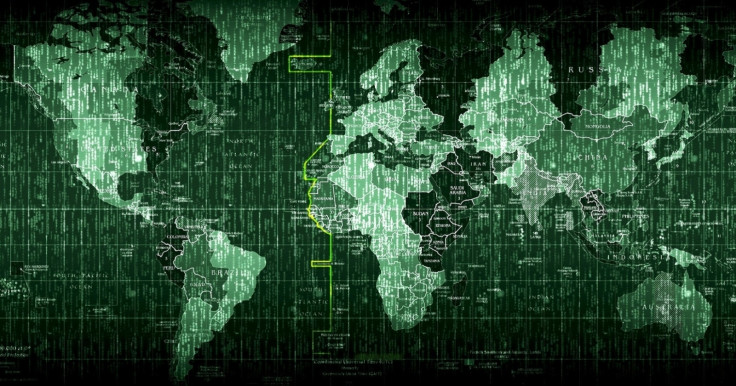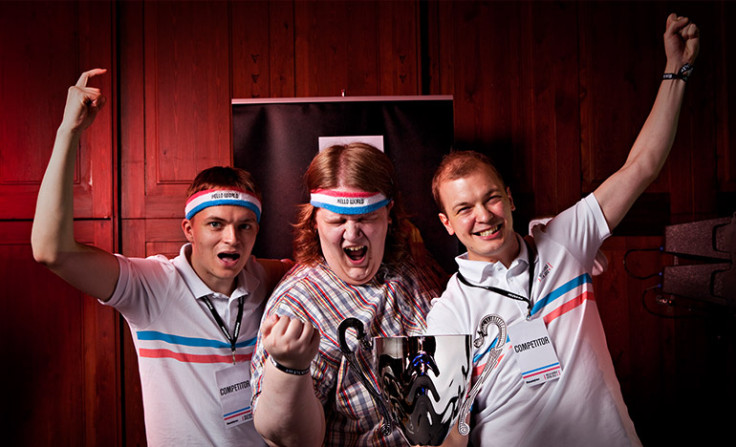Coding in the Classroom: How 2014 Became the Year Coding Took Over the World

Reading, writing, arithmetic... and coding? The view of many computer scientists and technology evangelists is that computer programming - or coding - has become a fundamental skill that should be taught to all children from a young age.
The transformation of the national curriculum that came into effect this week has seemingly recognised this view by introducing coding as a core part of the new computing programmes of study.
More broadly, this move signals a general shift of coding into the mainstream, with 2014 already witnessing the first coding-inspired children's books, computer games and even world championships.
One of the driving force's behind coding's entry into the mainstream is the widely held belief that it will soon become a vital skill required by a whole host of industries and professions not traditionally thought of as requiring knowledge of such a discipline, including medicine, finance, journalism and astronomy.
"Technology has infiltrated almost every part of our daily lives and is increasingly becoming an essential aspect of all industries," Rachel Swidenbank, head of online learning platform Codecademy's UK operations, told IBTimes UK.
"As the workplace is getting more competitive, it is becoming evident that obtaining even a foundational knowledge of coding is crucial to understanding the overall working of a business and gaining that edge over peers, particularly as employers begin to change how they evaluate the skills of their staff."
Coding superstars
As a measure of its importance, and as a signifier of its arrival on the world stage, the first ever Coding World Championship took place earlier this year in Helsinki, Finland. Over 4,000 coders from across 90 countries competed to be crowned the world's best.

Speaking to IBTimes UK after the event, 22-year-old Piotr Zurkowski from winning Polish team Need for C emphasised how coding had become ubiquitous in modern-day life, whether people noticed it or not.
"It appears in all fields of research," Zurkowski said. "Computing power helps with almost anything and to use it well, we need good coders.
"Being a coder means having endless possibilities. All you need is a computer and an idea, and you can create virtually anything. That's plain awesome."
Ville Valtonen, the organiser of the event, claimed world-class coders should get the same recognition as their athletic counterparts.
"We think that coders are real superstars," Valtonen said. "But they're not perceived in the same way as sports stars. We hope to lift them to a similar level of celebrity.
Computer games and children's books

In January this year, former teacher at Codecademy Linda Liukas put up a page on crowdfunding site Kickstarter in the hopes of raising $10,000 (£6,000) for a children's book that taught kids how to code.
Hello Ruby used a simple narrative and colourful illustrations to explain the basics of computer programming, such as loops and variables. Within three-and-a-half hours of the page going live, it had reached its fundraising goal. Within a month, it had raised over $300,000.
Liukas's book, which is due out later this year, allows children to learn to code without even realising they're doing so.
It is a teaching method that's been employed by London-based startup Kuato Studios, which created a video game that teaches the skills of coding through giant robot battles.
Liukas and Kuato Studios are part of a larger "code literacy" movement that believes an understanding of coding will be indispensable in the future and children should be taught from an early age.
"Code is the 21st-century literacy and the need for people to speak the ABC of programming is imminent," Liukas told IBTimes UK. "Our kids should learn to bend, join, break and combine code in a way it wasn't designed to. Just as they would with crayons and paper or wood and tools.
"It's a whole generation of kids that will use code like our generation used words. I don't think everyone will be a coder but the ability to speak and structure your thinking in a way a computer understands it will be one of the core future skills whatever your field."
© Copyright IBTimes 2025. All rights reserved.






















